Do vegetarians Live Longer
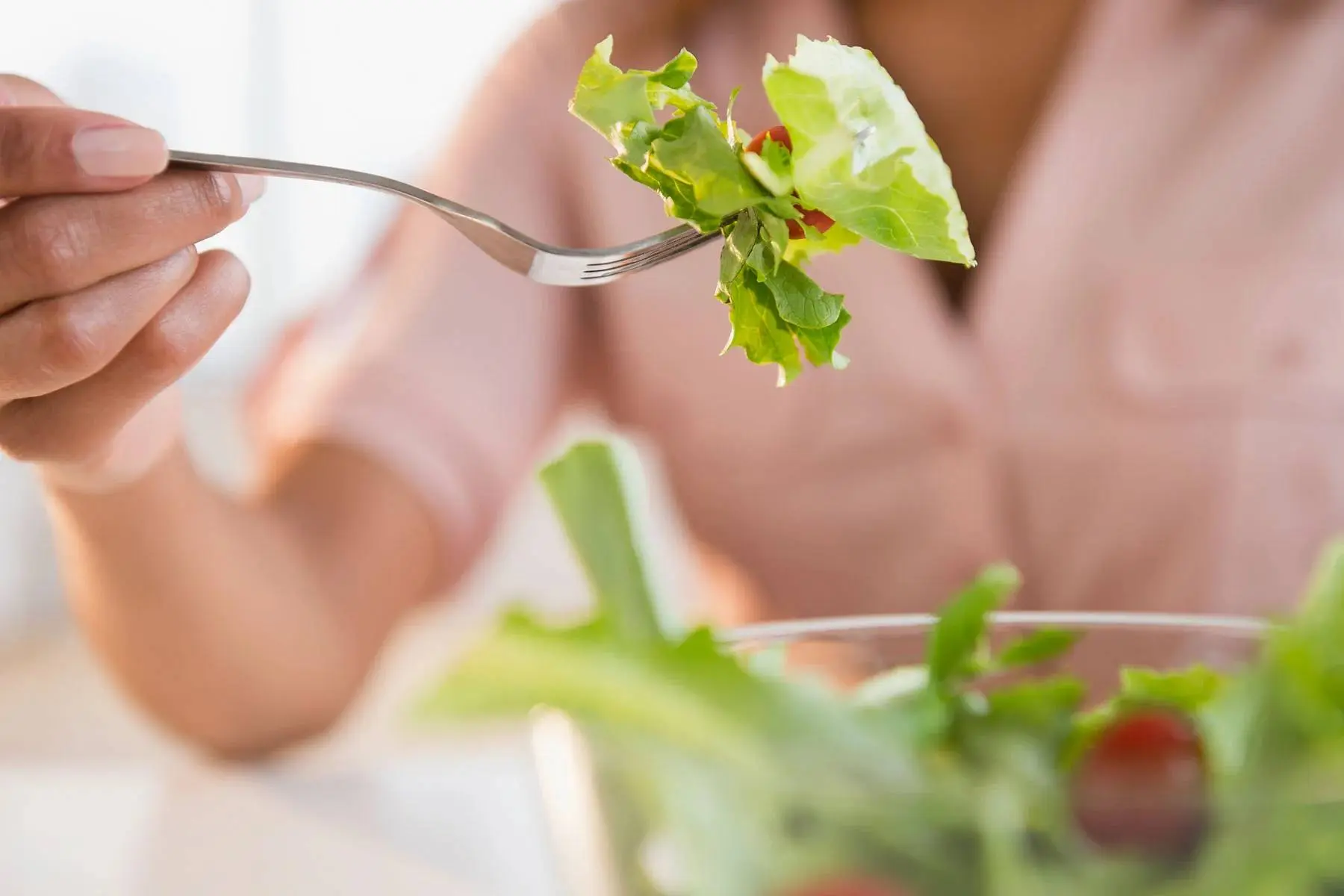
Vegetarians have always had a reputation for having a healthier diet and living longer. Some vegetarian diets are for weight loss and are temporary, for example, a 21-day vegetarian diet, or a 40-day vegetarian diet.
Vegetarians pride themselves on having a healthier diet than others.
Previous research in this field also showed that avoiding meat is the key to a long life.
Of course, this is true. For example, due to avoiding the consumption of animal products, the level of cholesterol in the blood of vegetarians is low, and this protects them from diseases such as blood pressure, blockage of blood vessels, and heart diseases. On the other hand, the lack of fat in the vegetarian diet prevents obesity and high blood fat. But here the question arises, is the fact that vegetarians are healthier than people who do not give up eating meat in their diet, just because they are vegetarians?
The Cancer Research Center in Germany has monitored the diet of a number of vegetarians for 12 years.
Among these people, there have been various types of vegetarians, including those who avoid all meat products, even eggs, milk and honey, as well as those who have a moderate diet and sometimes consume meat.
The result of this research was quite clear: the death rate of vegetarians was 30% lower among women and 50% lower among men than people who had a normal diet.
Less alcohol and smoking, another secret of long life. The thing about these numbers is that in this study, very few of the investigated vegetarians used cigarettes and alcohol excessively. Vegetarians are known to have an overall healthier lifestyle, are usually educated, and exercise is a regular part of their lives. If the researchers take these points into consideration, what changes will be made in the research results?
If you take into account the results of various studies that have been conducted in this field at the international level and compare vegetarians with meat-eating people who live healthy, then another picture is obtained: the mortality rate in these two groups is not much different. does not have
In a study conducted by the German Cancer Research Center, moderate vegetarians have a better condition than others. But in general, regardless of being a vegetarian or a meat eater, whoever lives a healthier life usually lives longer.
What is a vegan diet?
A vegan diet is a diet in which you cannot eat animal products such as meat, dairy and eggs. While some people following this diet eat honey, some avoid eating honey, because honey is also a byproduct of living organisms.
There are also many other elements to consider when considering veganism as a lifestyle, such as approaches to by-products such as gelatin, cosmetics and many more.
While veganism is a personal choice and a lifestyle that everyone has their own relationship with, its principles rely on cruelty-free living and consuming plant-based foods. However, this does not mean that you should only eat fruits and vegetables. You can find everything in a vegan form, too: from sushi to plant-based protein powders to burgers. Given that there are so many ways to be vegetarian, what are the implications for our health, well-being, and longevity?
Do vegans live longer?
Among the many claims about the positive effects of a plant-based lifestyle on human health and nutrition, there is a popular idea that vegans live longer on average. Nutritionist Brooke Jacob says:
A study published in the JAMA Internal Medicine Journal found that vegans had a 9% lower risk of dying from any cause than omnivores. Although the study published in The American Journal of Clinical Nutrition noted that while the rate of some chronic diseases may be lower in vegans, it cannot be concluded that this has an effect on the death rate. Of course, there may be such an effect, but there is still no strong evidence to support it.
Why do some vegans live longer?
Many vegans are said to stay healthier and fitter than average. There are several reasons for this.
While eating a healthy diet is generally beneficial, there are other health-conscious lifestyle habits that may be more prevalent in the vegetarian community. Consuming whole foods, exercising, drinking enough water and other important habits are more common among vegetarians, especially those whose main motivation for a vegetarian diet is to improve their health.
The most important thing to focus on when it comes to nutrition and longevity is eating a balanced diet with adequate nutrients, which is possible with a plant-based diet. "The key to all diets is to have a good variety of foods," says Jacob. This way, you ensure that you are getting a variety of nutrients to meet your needs. Eating a diet rich in fruits, vegetables, whole grains, legumes, and nuts will help you stay well-nourished. "It's also wise to add the right supplements to your diet and make sure you're getting enough iron, calcium, vitamin B12 and vitamin D."
What Are Vegan Sausages Made of Protein-Rich Healthy
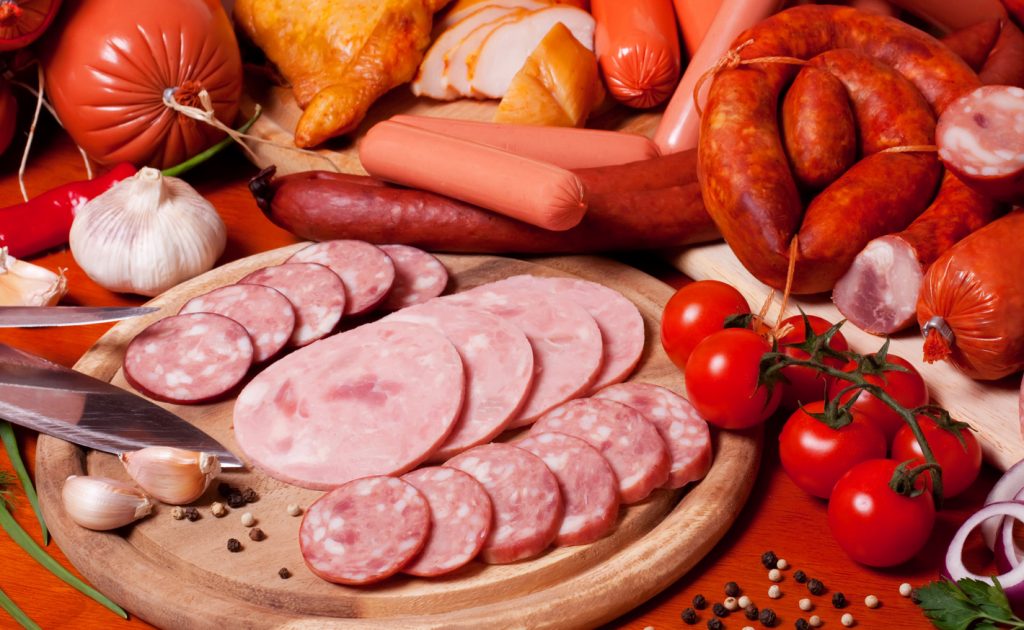
Sausage is one of the products that, although it has many fans, most people try to remove it from their food basket. The general public's perception is that this product is unhealthy, and the images of factories and unauthorized production centers of this product that have been spread on social networks have further proven the reason;
Due to the existence of such conditions, business owners are looking for a solution to gain customer trust, so new businesses and products are created; The production of sausages and sausages in the presence of customers is one of the solutions that has become very prosperous in the country in the last few years. Also, the production of vegetable sausages and sausages is one of the products that has been introduced recently and has its fans.
Sausages and vegetable sausages are made of what ingredients?
Based on various studies conducted on vegan food products compared to meat products, it shows that sausages and sausages are much healthier; Because no animal fat or cholesterol is used in them.
Of course, the amount of salt, oil and calories consumed in them can be adjusted using the same instructions and formulas that are used to produce sausages and other sausages.
One of the important things in sausages and vegetable sausages is the lack of meat taste; The fact must be accepted that the sausage produced without meat has a different taste and cannot be considered a competitor of a traditional meat product. However, these products have their own unique features and do not need to imitate or compete with meat sausages.
Recently, most vegetable sausages that are commercially produced do not use meat in their formulation, and soy, tofu, corn or a mixture of cheese and bread can be used as a substitute for meat and other permitted food additives.
Consumable raw materials and plant sausage production machinery
One of the advantages that this industry has for business owners in our country is the ease of access to the raw materials and machines needed by this industry, in fact, the main raw materials of sausages and vegetable sausages; It is grain and soy, in which, in addition to these ingredients, flavorings and seasonings are also used. This product is actually a combination of plant-based dough, colored paprika, mushrooms, carrots, broccoli, cauliflower, olives, and corn. … Is.
Its taste is similar to meat products. Although the content is vegetables, the base dough has a taste similar to meat products, and they can also feel the taste of vegetables.
The rise of vegan sausages: Exploring a plant-based trend
In recent years, there has been a remarkable shift in the culinary landscape as more people embrace plant-based alternatives, and one shining star in this veggie revolution is none other than the vegan sausage.
So, I have also been captivated by this growing trend and the popularity of plant-based sausages.
First, I’ve explored and shed light on the reasons behind this rise in vegan sausages.
Beyond being a delectable meatless option, these sausages offer many benefits that have caught the attention of both conscious and environmentally-aware consumers.
One of the driving factors behind this plant-based trend is the growing concern for animal welfare and the ethical treatment of animals.
Learning that pigs, as intelligent and emotional beings, face a life of factory farming to produce conventional sausages has prompted many to seek kinder and more compassionate alternatives.
Moreover, the environmental impact of meat production has become a pressing global concern.
As the articles revealed, traditional sausage production leaves a significant carbon footprint and contributes to greenhouse gas emissions. Vegan sausages, on the other hand, offer a greener choice with reduced environmental impact and a more sustainable future.
The rise of vegan sausages is changing our dining habits and challenging traditional notions of what sausages can be.
With the promise of delicious flavors and ethical considerations, these plant-based wonders undoubtedly lead the way in a burgeoning culinary revolution.
How To Make Vegan Curd With Walnuts
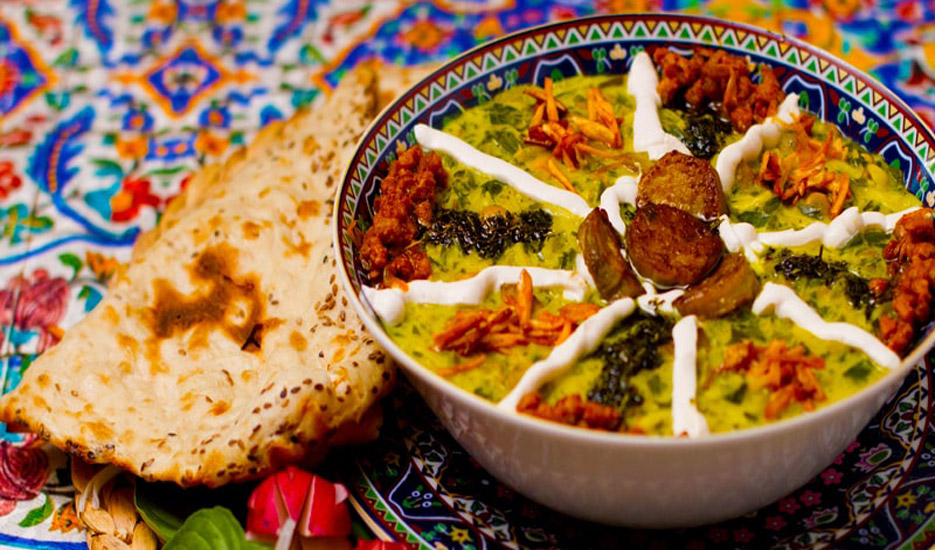
One of the alternatives to dairy curd for vegetarians who do not use dairy products or vegans is vegan curd, which is very nutritious and delicious and tastes very close to dairy curd. You can use this vegetable curd to prepare a variety of vegetarian dishes, such as vegan eggplant curd, string soup, shelle kalamkar soup, etc.
I’ve got a fantastic recipe for you – homemade raw vegan curd made with walnuts! It’s delicious and a super healthy and dairy-free alternative packed with Omega-3 goodness. The best part? You’ll have it ready to enjoy in just 3-5 minutes! How cool is that?
Vegan curd is a wonderful seasoning for some dishes like Eggplant Dip
So, for all you lovely folks out there looking for a plant-based option to dairy curd, this recipe is just what you need.
This curd is a dream come true for raw vegans, regular vegans, and even folks with lactose and dairy allergies. No one has to miss out on this yummy goodness!
Vegan curd is super simple and quick to make. With just four ingredients and a few minutes of your time, you’ll have a creamy and nutritious vegan curd ready to elevate your dishes.
And trust me; it’s even stronger and more nutritious than traditional dairy curd. Those walnuts are powerhouses of Omega-3, fiber, antioxidants, minerals, and vitamins.
Now, let me tell you a bit more about this marvelous walnut curd. Walnuts are not only rich in calcium, but they’re also a fantastic source of Omega-3 fatty acids, fiber, antioxidants, minerals, and vitamins. So you’re not just getting a tasty curd, but also a healthy one!
Homemade curd is very easy to make and you only need 4 basic ingredients: walnut kernels, water, salt and lemon juice.
Among the properties of this curd, due to the presence of walnut kernels, I can point to its rich omega-3 and antioxidant properties, and curd is also a good source of some vitamins and minerals!
Ingredients for making vegan curd
Raw walnut kernels, 1 cup
Water, ½ glass
Lemon juice, 4-5 tablespoons
Salt, ½ tsp
How to prepare vegan curd, non-dairy curd
Pour the raw walnut kernels with salt and lemon juice into the mixer.
Add water little by little and mix until the walnuts are well crushed and smooth and a white mixture is obtained.
It should be neither too thin nor too hard like the consistency of curd.
If it is too hard, you can add water or lemon juice.
If it is too thin, add walnuts and mix again.
How To Make Raw Vegan Cheeseburger
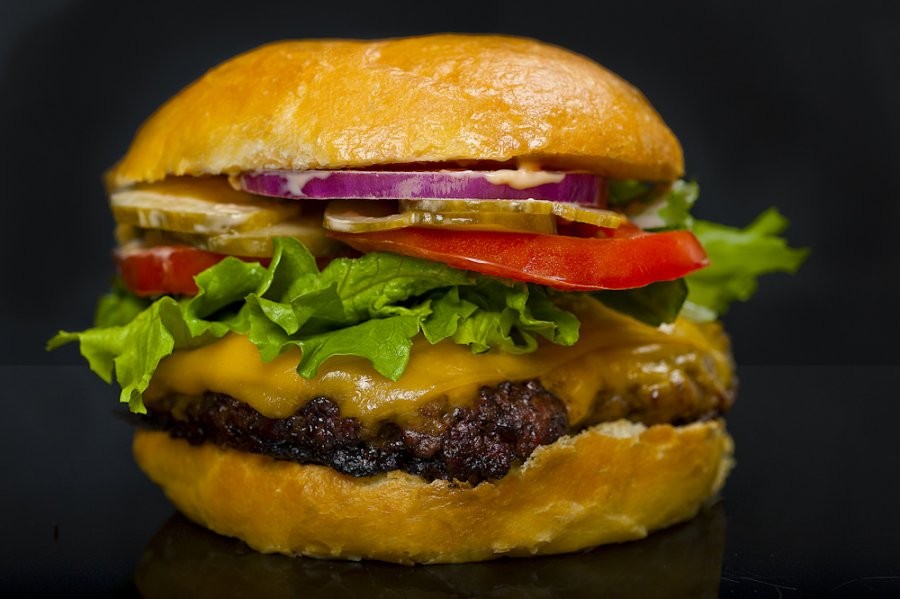
I’ve got an amazing recipe for you: a delicious Raw Vegan Cheeseburger with mushrooms and homemade vegan cheese!!
You won’t believe how easy and tasty this plant-based burger is. And guess what? It’s super easy to make!
Trust me, this mouthwatering raw burger will keep you on the healthy track.
Raw vegan cheeseburger is one of the most complete and delicious natural vegan foods. This raw vegan burger’s strong and attractive cheese will entice you to make this dish. Everyone, even non-vegetarians, will welcome this raw vegan burger.
Well, apart from being insanely delicious, it’s also a fantastic option for weight loss and overall health—the secret lies in the power of raw, nutrient-packed ingredients.
You’ll experience some awesome benefits, like increased nutrient intake, by going raw vegan. Just imagine loading up on all those vitamins, minerals, and fiber from fresh fruits, veggies, nuts, and seeds – talk about a nutritional boost!
Not only that, but a raw vegan diet can also do wonders for your digestion. Thanks to the natural enzymes in raw foods, your tummy will thank you for easy digestion and efficient nutrient absorption.
And let’s not forget about weight loss – with lower calorie content and high fiber content, this cheeseburger is a perfect addition to your weight loss journey.
But hey, don’t think it’s just for vegans! Even non-vegetarians have given this raw vegan cheeseburger a huge thumbs up. I mean, who can resist that irresistible taste and unique texture?
Now what happened when I made a raw vegan cheeseburger?
Now what happened when I made a raw vegan cheeseburger?
When I decided to go raw vegan for a few months, my friends and family thought I was nuts. They were like, “You can’t survive on just veggies and lettuce!”
Still, I wanted to change the perception of people around me about natural vegan foods, so when they were making their Cooked burgers, I surprised myself with a raw vegan cheeseburger.
Instead of the usual hamburger bun, I got creative and used big Portobello mushrooms as my “bun,” and for the “cheese,” I used a blend of nutritional nuts.
The taste of this raw vegan cheeseburger was unique and wonderful, that’s why others welcomed my cheeseburgers, and it was interesting for them as raw vegan food. I want to share this exciting experience with you so that you can make the most of this cheeseburger and tell your friends about it.
Now, I’m super excited to share this life-changing experience with you all.
Get ready for a step-by-step guide on how to make this heavenly, healthy, and incredibly tasty raw vegan cheeseburger.
- Nutritious: This recipe is loaded with healthy goodness like large mushrooms, sunflower seeds, lemon, lettuce, tomato, and onion. These ingredients are bursting with vitamins, minerals, and fiber – all the stuff your body craves!
- Raw and Vegan: Yep, you heard it right. This burger is 100% raw and vegan, perfect for anyone looking to incorporate more plant-based goodness into their diet.
- Low in Calories: This raw veggie burger is a dream come true if you’re watching your calories. It’s much lighter on the calorie scale than regular meat-based burgers.
- Easy to Make: Don’t worry about complicated recipes here. This one’s a breeze to prepare, requiring only a handful of simple ingredients and minimal prep time.
- Customizable: Make it your own! Play around with the middle ingredients and add your favorite veggies or toppings to customize your burger exactly how you like it.
And remember, going raw vegan can bring a host of benefits, like increased nutrient intake, improved digestion, weight loss, reduced inflammation, and a lower risk of chronic diseases. Plus, you might experience a boost in energy levels – who doesn’t want that?
Just a couple of tips before you start whipping up your Raw Vegan Cheeseburger masterpiece:
Just a couple of tips before you start whipping up your Raw Vegan Cheeseburger masterpiece:
- To prepare the mushrooms, be sure to choose the biggest mushrooms so that the burger ingredients can fit inside the mushrooms.
- Use a dryer to dry the mushroom juice, or you can put it in the oven at the lowest temperature.
- This dish does not need to be cooked, so it is prepared quickly.
- The middle material of this hamburger is flexible so that you can add your favorite vegetables or toppings.
What can vegans not eat Vegan Prohibited Food List
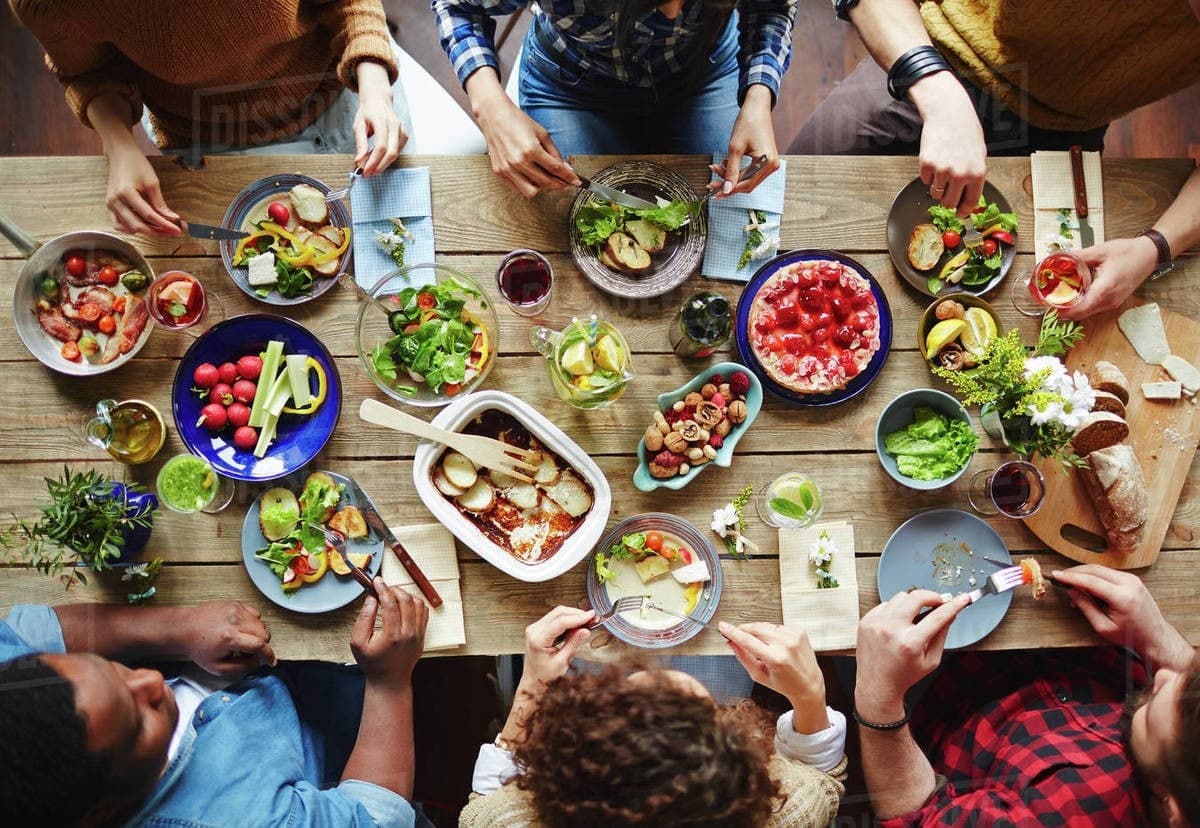
In general, vegans avoid eating foods of animal origin. Following a vegetarian and vegan diet has many reasons, including ethical, health or environmental concerns.
Some foods that vegetarians should avoid are obvious, but others may surprise you.
1-6: Animal foods
Veganism is a lifestyle that rejects various forms of animal exploitation, whether for food or for anything else.
For this reason, vegetarians avoid eating foods of animal origin, such as:
Meat: beef, lamb, pork, veal, sirabi, liver, offal, game meat, etc.
Poultry: chicken, turkey, goose, duck, quail, etc.
Fish and seafood: all kinds of fish, shrimp, squid, scallops, oysters, crabs, etc.
Dairy products: milk, yogurt, cheese, butter, cream, ice cream, etc
Animal eggs: eggs, quail eggs, duck eggs, ostrich eggs, fish eggs, etc.
Bee products: honey, bee pollen, royal jelly, etc.
Summary:
Vegetarians avoid eating animal meat and animal byproducts. These include meat, poultry, fish, dairy, eggs, and bee products.
15-7: Ingredients or additives derived from animals
Many foods contain ingredients or additives derived from animals that most people are unaware of. For this reason, vegetarians should avoid consuming foods containing:
Some special additives: Some food additives can be obtained from animal products. For example, we can mention E120, E322, E422, E 471, E542, E631, E901 and E904.
Cochineal or carmine: skin snails are used to make carmine, a natural red dye is produced and used for food and products.
Gelatin: This thickener is obtained from the skin, bones and connective tissues of cows and pigs.
Eisinglass: This gelatin-like substance is obtained from the bladder of fish, which is often used in the preparation of beer or wine for clarification.
Natural flavors: Some of these ingredients are animal-based. Castorium, for example, is a flavoring and fragrance extracted from the secretions of the anal scent glands of the water dog.
Omega-3 fatty acids: Many products enriched with omega-3s are not vegan, as most omega-3s come from fish. Of course, omega-3s derived from algae are vegan options.
Shellac or shellac: It is a substance secreted by a female insect. It is often used as a glossy coating on candy and fresh food products.
Vitamin D3: Most vitamin D3 is obtained from fish oil or lanolin found in sheep's wool. Vitamin D2 and D3 obtained from lichen are herbal alternatives of this vitamin.
Dairy ingredients: whey, casein (a type of milk protein) and lactose are all derived from dairy products.
These ingredients and additives can be found in a wide variety of different processed foods. It is very important to check the ingredient list carefully.
Summary:
Vegans should check food labels to make sure products do not contain the ingredients listed above.
16–32: Foods that sometimes (but not always) contain animal ingredients.
There are some foods that we might expect to be 100% plant-based and vegan, but sometimes they contain one or more animal ingredients.
For this reason, vegetarians who want to avoid all products of animal origin should be careful when consuming these foods:
Bread products: Some bakery products such as bagels and bread contain L-cysteine. This amino acid is used as a softener in bread and is often obtained from poultry feathers.
Beer and Liquor: Some manufacturers use albumin, gelatin or egg white casein in the process of beer or liquor production and sometimes add Eisinglass to clarify their final product.
Caesar sauce: Certain types of Caesar sauce use Gypsy fish paste as one of its ingredients.
Candy: Some types of candy and gum contain gelatin. or others are coated with a carmine-red substance obtained from the cochineal insect.
French fries: Some types of french fries are fried in animal fat.
Olive tapenade: Various types of olive tapenade contain Gypsy fish.
Fried foods: The batter used to prepare fried foods such as fried mushrooms and onions sometimes contains eggs.
Pesto sauce: Many types of store-bought pesto contain Parmesan cheese.
Some bean products: Most baked bean products contain ham.
Non-dairy creamers: often contain casein, a protein from milk.
Pasta: Some pastas contain eggs.
Potato chips: Some potato chips are flavored with powdered cheese or contain other dairy ingredients such as casein, whey, or animal enzymes.
Processed sugar: Some manufacturers lighten the sugar with bone char (often called natural carbon) made from cow bones. Organic sugar is a vegetable substitute for this type of processed sugar.
Roasted peanuts: Sometimes gelatin is used to produce roasted peanuts or nuts so that salt and spices stick to the nuts better.
Some dark chocolate: Dark or dark chocolate is usually vegan. However, some types include animal products, such as whey, milk fat, milk solids (the dry powder that remains after the milk is completely separated from the water), clarified butter (a type of milk fat), or nonfat dry milk.
33–37: Harmful Vegan Foods
Just because a food is vegan does not mean it is healthy or nutritious.
Therefore, vegetarians who want to improve their health should stick to minimally processed plant foods and limit the use of the following products in a vegetarian and vegan diet:
Vegan treats: Vegan ice cream, candy, cookies, chips, and dips generally contain just as much added sugar and fat as non-vegan ones. Plus, they have almost no vitamins, minerals, and beneficial plant compounds.
Vegan Sweeteners: Nectars, agave syrup, date nectar and maple syrup are high in sugar. Eating too much of them may increase the risk of diseases such as heart disease and obesity.
Processed meats and plant-based cheeses: These processed foods usually contain a lot of additives. They also contain far fewer vitamins and minerals than protein-rich plant foods such as beans, lentils, peas, nuts, and seeds.
Some factory non-dairy (plant) milks: Milks without sweetened dairy generally contain a fair amount of added sugar. Choose unsweetened milk instead.
Factory-made vegan protein bars: Most vegan protein bars contain large amounts of processed foods. They usually contain an isolated type of protein that lacks plant nutrients.
Summary
Health-conscious vegetarians should limit processed foods. Instead, choose more foods that are organic, homemade, or naturally preservative-free.
last line:
Vegetarians try to avoid eating and consuming foods of animal origin in a vegetarian and vegan diet.
This includes animal and meat products, as well as foods that contain any material derived from an animal.
As mentioned, not all foods made from plant ingredients are healthy and nutritious. Harmful vegan foods are also unhealthy foods.